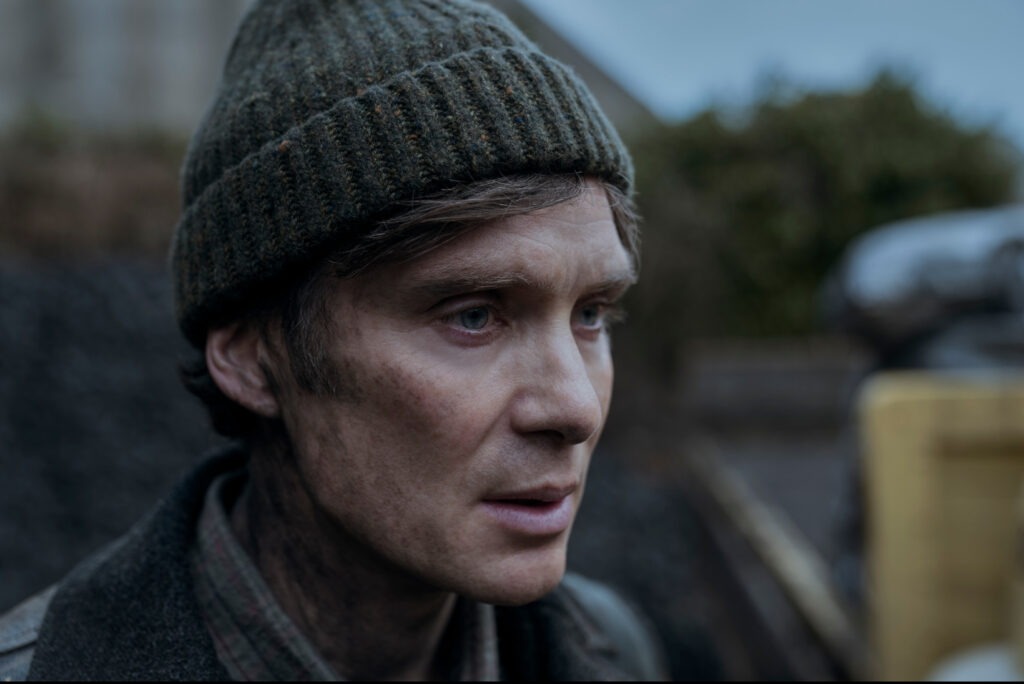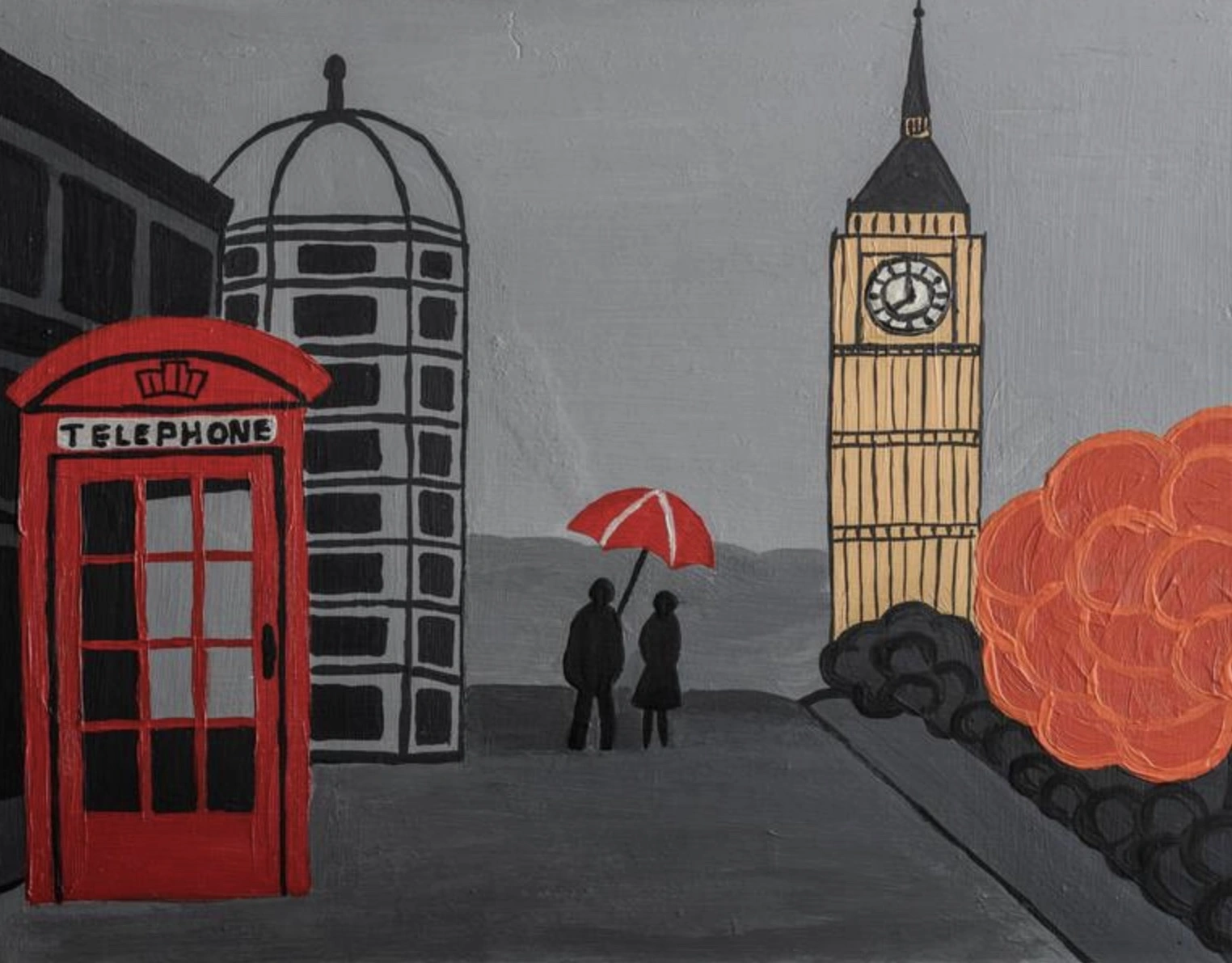In a country where the past often simmers beneath a sheen of gentility, “Small Things Like These” arrives as a subtle, soul-striking reckoning. Adapted from Claire Keegan’s acclaimed novella and now newly available on Prime Video in the UK and Ireland, the film features a career-defining performance by Cillian Murphy as Bill Furlong—a quiet man drawn into the chasm of institutional cruelty cloaked as piety. Directed with aching restraint and interpretive grace, this Irish film does not roar—it murmurs, weeps, and finally, stands still in its revelation.
At its center lies the story of a small-town coal merchant in 1980s Ireland, living what many would call an ordinary life. But the weight of that ordinariness is precisely what Claire Keegan interrogated in her text, and what this adaptation sensitively explores. Murphy’s Bill Furlong is a character defined not by heroic stature, but by moral discomfort. As Christmas approaches, and the world around him wraps itself in rituals of charity and familial warmth, Furlong finds himself increasingly disturbed by what he observes at the local convent—a Magdalene Laundry still quietly operating under the surface of social approval.
A Nation in Silence, A Man in Conflict
Cillian Murphy’s portrayal is not showy, nor is it steeped in melodrama. It is a masterclass in stillness and interiority. Bill Furlong is the kind of man Irish towns are built upon: working-class, decent, conflict-avoidant. He delivers coal, tends to his daughters, and does not question the quiet hierarchies around him. But the story builds with unnerving precision: a trip to the convent becomes a moment of unveiling. He encounters a young girl, frightened and trapped, her presence unmistakably out of place. The nuns are cold, evasive, and unwavering in their power. Furlong’s instincts—to dismiss, to retreat into silence—wrestle against a growing ache in his conscience.
The power of “Small Things Like These” lies not in any climactic confrontation but in the weight of moral recognition. It’s a portrait of a man realizing that the very normalcy he treasures has been built upon the suffering of others. And it is a portrait of a nation coming to terms with its complicity.
Context: The Magdalene Laundries and the Unquiet Irish Past
The film delicately orbits one of the darkest and most shameful chapters in modern Irish history: the Magdalene Laundries. Run by Catholic religious orders and supported, either explicitly or tacitly, by the Irish State and society at large, these institutions housed thousands of women deemed “fallen.” Many were unmarried mothers, some were simply poor or considered morally deviant. They were forced into unpaid labor, shamed, abused, and disappeared from public life.
Keegan’s novella, and now this adaptation, doesn’t sensationalize this history. Instead, it highlights the banality of complicity. How ordinary people—people like Furlong—could deliver coal to these places, hear muffled cries, feel unease, but ultimately move on. The brilliance of the narrative lies in how it frames that complicity not as monstrous but as deeply human—and therefore, all the more disturbing.
Cillian Murphy: Bearing Witness in Performance
Coming off global recognition from “Oppenheimer,” Cillian Murphy returns to his native Ireland not as a star, but as a witness. He dissolves into the landscape of the film—a cold, damp provincial town where stone houses huddle against the Atlantic wind. His face, usually so sharp in intensity, here wears weariness. There’s something of the ghost in his performance, a man half-alive, drifting between duty and dread.
There’s one moment—wordless, piercing—where Furlong watches a priest lay a hand on a girl’s shoulder. The shot lingers. Murphy’s expression is unreadable but thick with recognition. The scene encapsulates the film’s emotional frequency: so much is said in what’s not spoken. Murphy, in this performance, offers no catharsis. He simply allows the viewer to see—to feel—the cost of knowing and the weight of action.
Crafting Intimacy Through Austerity
Director Tim Mielants, known for his work on “Peaky Blinders,” brings a stark minimalism to the film. The cinematography favors wide shots of mist-laden streets, candlelit interiors, and wintery Irish skies. This is a world where silence matters. Dialogue is sparse, music is restrained, and the camera lingers on details—the crunch of coal, the flicker of candlelight, the rustle of religious garments.
But there’s a spiritual richness to the sparseness. This is a Christmas story in a deeper sense—not one of festivity, but of reckoning, of choosing between comfort and truth. The parallels with biblical themes—witnessing, sacrifice, revelation—are handled with care. The nativity is not sentimentalized but recontextualized: here is a man forced to decide if he can truly call himself good while letting innocence suffer.
Smallness as Rebellion
What makes “Small Things Like These” such a triumph is its belief in the power of a single act. There are no sweeping institutional reforms within the runtime. No nun hauled off in handcuffs. No revolution. The drama is internal. It’s in Furlong’s decision to stop looking away. It’s in the tiny, terrible choices that make up a society—and the possibility, however fragile, of doing better.
This belief in smallness as a form of rebellion is rare in cinema. It resists the pressure to turn every story into spectacle. In this way, the film is a love letter to conscience—to the quiet, unheralded moment where a man chooses truth over comfort. It doesn’t ask its audience to feel triumphant, but to reflect. It invites an uneasy sort of hope.
Ireland on Screen: Reckoning, Rebuilding
Irish cinema in recent years has undergone a quiet transformation, marked by films like “The Quiet Girl” (also based on Keegan’s work), “Michael Inside,” and “Hunger.” These films are less concerned with sweeping narratives than they are with emotional precision and historical clarity. They do not flinch from exposing the cracks in the country’s foundations. “Small Things Like These” continues in that tradition. It understands that trauma is not just a matter of what was done, but what was allowed to be done.
That it has landed on Prime Video in Ireland and the UK is significant. Accessibility means that the quiet horror at the film’s center cannot be dismissed as niche or “art house.” It’s available in homes where these memories might still live—where the Magdalene system’s effects ripple through generations.
A Poetic Resistance
Claire Keegan’s prose—tight, spare, moral without ever being preachy—translates beautifully to screen through restraint. It’s a film that understands the literary root of its existence, but never leans on dialogue to tell its story. The visuals carry a literary silence. The language of gesture—Furlong’s tired hands, the girl’s downcast eyes, the rustle of habits and sacks of coal—speak louder than exposition ever could.
This isn’t “based on a true story” in the dramatic sense. It’s truer than that. It’s based on a national reality. It speaks to what happens when pain is buried under politeness, when harm becomes normalized because it’s routine. And it refuses to excuse that normalization.
The Final Turn: Bearing the Cost of Knowing
The film’s final act doesn’t bring resolution—it brings commitment. Furlong, having witnessed enough, decides not to walk away. In doing so, he doesn’t become a savior. He doesn’t fix the system. But he stops participating. That choice is dangerous. It will cost him. And yet, it’s the only honest one available.
This moral choice—rendered without sentiment, without cinematic flourish—is what gives “Small Things Like These” its gravitas. Murphy’s eyes do most of the work, and the audience is left with a feeling not of satisfaction, but of necessary discomfort. That’s the film’s brilliance. It leaves you questioning how often you’ve walked past the suffering of others because it was easier to do so.
The Quiet Power of Moral Cinema
In an era dominated by spectacle, “Small Things Like These” dares to whisper. It trusts its audience to listen. It is a film about silence—what it enables, what it conceals, and what it costs. Cillian Murphy delivers one of the most quietly arresting performances of his career, anchoring a story that doesn’t flinch from Ireland’s painful truths.
But beyond its historical framing, it’s a meditation on conscience—on what it means to live ethically in a world designed to reward apathy. As Irish cinema continues to excavate its own past, films like this remind us that the path to justice is not paved by grand gestures, but by the steady refusal to look away.
In a time when loud voices often dominate the screen, “Small Things Like These” reminds us that sometimes, the most powerful thing a film can do is pause—and let us feel the silence.
No comments yet.









